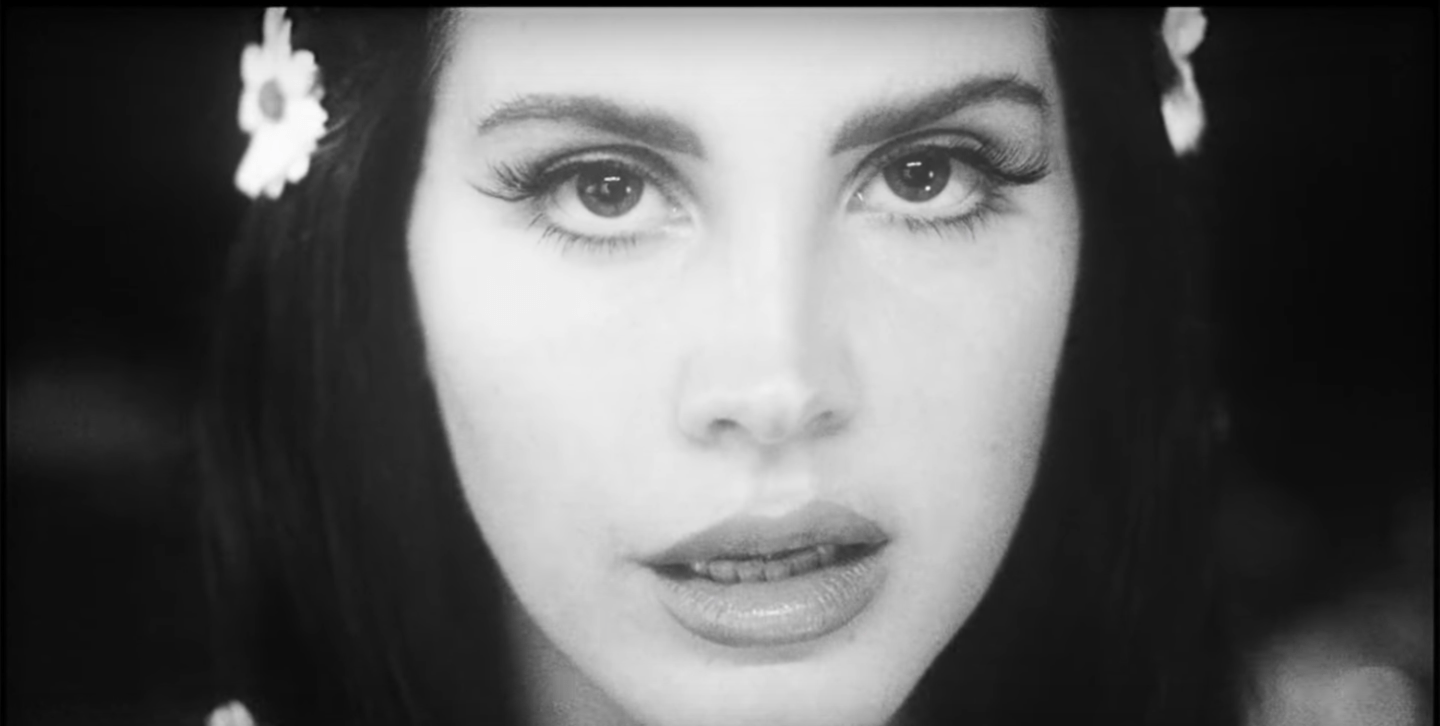It seems like Lana Del Rey lived a dozen lives before her love ballad “Video Games” went viral the summer of 2011. She’d grown up in a small upstate New York town, attended a preppy boarding school, and spent a gap year waitressing in Long Island. At university, she’d studied metaphysics while living in the Bronx. This early interview captures the pre-fame years when Lana lived in a Jersey trailer park, her hair dyed platinum blonde, writing songs under the name Lizzy Grant.
“I had a vision of making my life a work of art,” she explained, in one of her first interviews going by Lana Del Rey. She’d given us a thesis for her career in that moment, though basically no one really believed her. That same month, Pitchfork had trashed her debut album: “For all its coos about love and devotion, it’s the album equivalent of a faked orgasm.” Everything was torn apart, by everyone — from her performance on SNL to the rumors that whirpooled about her family, her looks, her upbringing.
And “everything was not true,” she repeatedly clarified. “As soon as the first person wrote about me, the articles became just blatant, all-out lies. I consider it slander. If I cared more, I’d kill them.”
Her new single, “Mariners Apartment Complex,” is a dreamy meditation on a moment of misinterpretation with a past love. In an interview with BBC’s Annie Mac, Lana explained that the song was inspired by a late-night walk with a guy she’d been seeing, how he’d said to her, “I think we’re together because we’re both similar — we’re both really messed-up.” Hearing that at a point when she felt she was actually doing pretty good was the “saddest thing [she’d] ever heard.”
“You took my sadness out of context,” is the opening lyric of the song, but when she later sings the words, “they mistook my kindness for weakness,” it’s impossible not to hear “they” as representing not just that one guy but everyone that had tried to prove Lana wasn’t who she said she was.
“I fucked up, I know that / but Jesus, can’t a girl just do the best she can?” she sings, and it’s easy to recall the time The Guardian ran the exploitative headline: “Lana Del Rey: ‘I wish I was dead already.’” Or the time Entertainment Weekly speculated if she gave the “worst performance in SNL history.” Or the time Lana jokingly referred to herself as a “gangsta Nancy Sinatra,” and to this day it’s still used by writers in profiles of her. The list goes on.
“I think when I came out around 2011, it was just so not okay to be different or, like, have a little sadness,” she reflected in her radio interview today.
When she was asked what advice she’d give her fans back in that early interview, filmed by MySpace at the Chateau Marmont, she answers: “Find someone who has a life that you want and figure out how they got it. Read books. Pick your role models wisely — find out what they did and do it.”
Lana’s career — the ups and downs, the self-mythologization, the art of how she’s lived her life and made her work — forms a kind of guidebook to “doing it” as an artist in 2018.
Like Lana, writer Chelsea Hodson has revelled in taking on new kinds of identities and writing about all of it — it’s the meaning behind the title of her new memoir, Tonight I’m Someone Else. With absurd art school tuitions, rising rents in our world’s creative hubs, and industries that are becoming increasingly cluttered and nepotistic, the path to becoming an “artist” has probably never felt more muddy and confusing.
“When you’re young, everyone’s an artist,” Chelsea writes. “But it’s a game of endurance, a fight against addiction, children, comfort, stasis, health insurance, home ownership. People drop off one by one. No one ever tells you that.”
Lana Del Rey stuck it out, though — through her own teenage addictions, through all the cities and places she lived in, through the floods of sexism and slander that almost drove her to quit music entirely. Her sixth, Jack Antonoff-produced album is “surf-influenced” and due for release early next year. Before then she’s releasing a book of poetry too, simply because she wants them to exist out in the world — she says she’ll just drop them off at a bookstore in Silver Lake if she has to.
Seven years later, “Video Games” still feels like quintessential summer love, those universal feelings of humidity and heartache. With each new record she’s doubled down on her uniquely beautiful and sludgy California sound, crafting her own sonic world. And now her new single joins that catalogue of work — songs made by an artist who’s over being told who she’d been, who she’s now, and who she’ll become.
